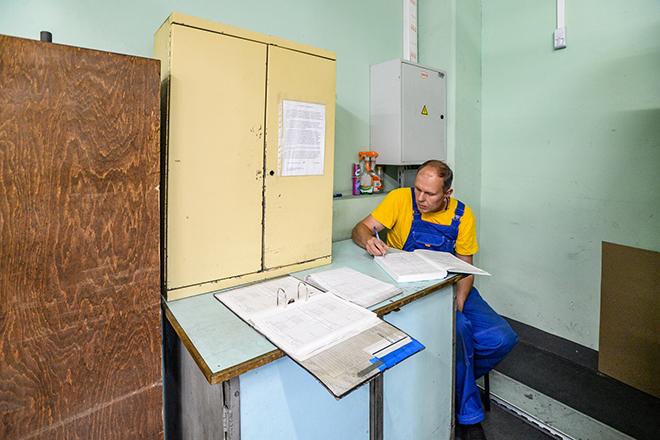Author: Maria Finatova, Head of the Department of Labor Law of the Institute of Professional Personnel
We very often encounter in the course of our work activities the performance of work outside the established working hours. Sometimes these are really important matters, the completion of which determines the conclusion of an important contract, winning in court, making a profit, and sometimes it is simply completing the current work, which for some reason was not completed within the “framework” of the working day.

Consequences of overwork
“There is a mountain of detailed research demonstrating that employees who work long hours suffer serious health consequences,” says John Pencavel, professor emeritus of economics at Stanford University and author of Diminishing Returns at Work. : The Consequences of Long Working Hours).
Over two decades, more than 200 studies have been conducted on the relationship between overwork and well-being.
- A study of their results revealed a correlation between long working hours and the incidence of heart problems and high blood pressure.
- Those who worked overtime (i.e., spent 50-60 hours a week - by the standards of some industries, this is the same as part-time) were more likely to suffer work-related injuries and complain about sleep.
- There was also an obvious connection with habits that affect health, such as smoking, drinking alcohol or using drugs.
Not only the health of employees suffers from regular overtime, but also their results. Research suggests there is a link between rest and problem-solving ability, the amount of free time and some measures of performance, as well as sleep deprivation and cognitive decline.
Pencavel's research focused on munitions factory workers. During World War I, they worked 70-90 hours a week.
- After the first 49 hours worked in a week, there was a direct relationship between time and productivity: the harder they worked, the more they produced.
- Starting from hour 50, the trend continued, but productivity decreased every hour.
- After 64 hours, productivity dropped. Only the number of work-related injuries increased.
- Pencavel also found that those who worked seven days straight without rest produced less than those who received one day off per week for the same number of hours worked.
The researcher concluded that there is no specific number of hours after which performance declines. It will be different for each industry. However, his main conclusion is that rework does not lead to increased results.
OVERTIME WORK
Overtime is work performed by an employee at the initiative of the employer outside the established working hours: daily work (shift), and in the case of cumulative accounting of working hours - in excess of the normal number of working hours for the accounting period (Part 1 of Article 99 of the Labor Code of the Russian Federation, letter Rostruda dated December 2, 2009 No. 3567-6-1).
Such an initiative by the employer must be reflected in the relevant organizational and administrative document.
Some of our employees “like” to stay in the office after the end of the working day, and then make claims that they work overtime without any accounting or payment. At the same time, their immediate supervisors believe that they simply work ineffectively during the working day, so they do not get anything done. Are the workers right? Is it necessary to pay for such overtime according to the overtime rules?
To recognize overtime as overtime work, it is necessary that the initiative to involve an employee in overtime work comes from the employer, and not from the employees. It is very important that each case of involvement in overtime work is justified and formalized by order of the manager.
If an employee, at his own request and discretion, came to work early or was late for several hours in the evening, such work will not be considered overtime and, as a result, will neither be paid nor taken into account when determining the number of hours worked (Article 99 of the Labor Code of the Russian Federation, letter Rostruda dated March 18, 2008 No. 658-6-0). Please note: in these situations we can even talk about a violation of the labor regulations established by the employer.
Also, the work of employees who have an irregular working day (Articles 97 and 101 of the Labor Code of the Russian Federation, letter of Rostrud dated 06/07/2008 No. 1316-6-1) or part-time workers (Article 601 of the Labor Code) is also not overtime, although it is performed outside the working day RF).
Rules for engaging in overtime work
When inviting employees to work overtime, the employer must comply with the following rules.
Rule 1: Overtime work cannot be planned in advance.
As follows from the definition of overtime work (Article 99 of the Labor Code of the Russian Federation), its use in most cases is forced on the employer due to some circumstances or violations in the course of business activities (production process) and is of an exceptional nature. For this reason, overtime work cannot be planned in advance (letter of Rostrud dated 06/07/2008 No. 1316-6-1). This is confirmed by judicial practice.
Thus, the judicial panel for civil cases in the cassation ruling of the Supreme Court of the Republic of Karelia dated 04/13/2010 agreed with the conclusion of the court of first instance (decision of the Petrozavodsk City Court dated 03/01/2010) regarding clause 4 of the contested order of the State Tax Inspectorate of the Republic of Karelia dated 12/17/2009 No. 63/ 22/2-933 on the prohibition of involving drivers in overtime work on the basis of a pre-drawn overtime schedule for drivers, justifying its position with the following arguments.
In accordance with Art. 99 of the Labor Code of the Russian Federation, engaging an employee in overtime work is permitted with his consent and in the cases provided for in this article.
According to clause 5.2.10 of the collective agreement, employees to whom the procedure for summarized recording of working time is applied can be involved in overtime work under the conditions provided for in Art. 99 of the Labor Code of the Russian Federation and clause 5.2.7 of the collective agreement. The accounting period for CTA drivers is one month. By virtue of clause 5.2.7 of the collective agreement, in the case of involving employees in overtime work, the parties are guided by the norms of Art. 99 Labor Code of the Russian Federation.
Meanwhile, the court found that in relation to drivers, it is permissible to involve them in work outside the normal working hours. At the same time, overtime work is planned almost monthly for a year in advance, for which the written consent of drivers is requested. However, this contradicts the provisions of Art. 99 of the Labor Code of the Russian Federation, within the meaning of which the employee’s consent to overtime work must be obtained by the employer from the employee before each fact of being involved in such work.
As a result, the decision of the Petrozavodsk City Court dated March 1, 2010 in this case was left unchanged, and the cassation appeal of the applicant (employer) was not satisfied.
Rule 2. Overtime as part of overtime work is counted at the end of a certain period.?
Depending on the procedure for recording working time, overtime will be work that is performed at the initiative of the employer outside (Article 99 of the Labor Code of the Russian Federation):
- the established duration of daily work for a given category of workers (for example, 8 hours a day) - with the usual recording of working hours;
- the normal number of working hours for the accounting period (month, quarter, year) - with summarized accounting of working hours.
Note! For employees with reduced working hours, work outside of it is considered overtime
Rule 3. The law establishes the maximum duration of overtime work.
The duration of overtime work should not exceed four hours for each employee for two days in a row and 120 hours per year (Part 6 of Article 99 of the Labor Code of the Russian Federation).
For car drivers, when accounting for working hours in total, overtime work during a working day (shift) together with scheduled work should not exceed 12 hours. The exception is cases when it is necessary to complete a trip or a replacement does not show up (clause 23 of the Regulations on the peculiarities of working hours and rest time for car drivers, approved by order of the Ministry of Transport of Russia dated August 20, 2004 No. 15).
The organization has many part-time workers. Can they be asked to work overtime? And if so, what are its limits?
The law does not contain any exceptions for involving part-time workers in overtime.
Regarding the overtime limit for part-time workers, the following must be kept in mind. The length of the working day for them cannot exceed four hours (they can be recruited to work full-time only on days free from their main work). In addition, the norm of working time for a month (or another accounting period) for them should not exceed half of the monthly norm of working time (norm of working time for another accounting period) in accordance with the production calendar (Article 284 of the Labor Code of the Russian Federation). But at the same time, for part-time workers, there is a general limitation on the duration of overtime work - no more than four hours for two days in a row and no more than 120 hours per year (Article 99 of the Labor Code of the Russian Federation) , since the law does not contain another rule.
Note! On December 6, 2011, Federal Law No. 402-FZ “On Accounting” was adopted, which will come into force on January 1, 2013.
Rule 4. The employer is required to keep accurate records of overtime hours worked.
Because of these strict restrictions, the employer must ensure that each employee's overtime hours are accurately recorded. Such records are kept in the working time sheet according to unified forms No. T-12 and No. T-13, approved. Resolution of the State Statistics Committee of Russia dated January 05, 2004 No. 1. Grounds: Part 7 of Art. 99 Labor Code of the Russian Federation, clause 2, art. 9 of the Federal Law of November 21, 1996 No. 129-FZ “On Accounting”, paragraph 1 of Art. 252 and 313 of the Tax Code of the Russian Federation.
How is overtime worked recorded on the time sheet?
In column 4 of the unified form No. T-13 (columns 4 or 6 of the unified form No. T-12), the letter code “C” or the digital code “04” is entered, and below it the number of hours and minutes worked overtime is indicated (clause 2 of the Instructions on the application and completion of forms of primary accounting documentation for recording labor and its payment, approved by Resolution of the State Statistics Committee of Russia dated January 5, 2004 No. 1).
Rule 5. Overtime work is occasional. Involvement in overtime work should not be systematic; it can occur sporadically in certain cases (letter of Rostrud dated 06/07/2008 No. 1316-6-1).
Rule 6. Violation of the procedure for attracting overtime work entails administrative liability.
Note! Under no circumstances should pregnant women, minors (with the exception of creative workers and athletes) and employees during the period of validity of the student contract be involved in overtime work
If the procedure for involving an employee in overtime work is violated, the employer is liable in the form of an administrative fine (Part 1 of Article 5.27, Code of Administrative Offenses of the Russian Federation, resolution of the Federal Antimonopoly Service of the Central District dated March 21, 2006 in case No. A08-10945/05-21.):
- for officials - in the amount of 1000 to 5000 rubles;
- for legal entities - from 30,000 to 50,000 rubles. or administrative suspension of activities for up to 90 days. At the same time, the employer’s violation of the procedure for engaging in overtime work (for example, exceeding the maximum permissible number of hours of overtime work per year) should not affect the employee’s right to payment for overtime work.
Rule 7. It is prohibited to involve certain categories of workers in overtime work.
It is strictly prohibited to engage in overtime work:
1) pregnant women (Part 1, Article 259);
2) employees under the age of 18, with the exception of creative workers and athletes (Article 268 and Part 3 of Article 3488 of the Labor Code of the Russian Federation);
3) employees during the period of validity of the student agreement (Part 3 of Article 203 of the Labor Code of the Russian Federation). The law guarantees timely and adequate rest for these employees, which means that no circumstances can serve as a basis for involving them in overtime work, even if the employees themselves agree to this.
Procedure for engaging in overtime work
Depending on the reasons for the need for overtime work, involvement in it can be carried out either with or without the employee’s consent (Table 1).
In exceptional cases, when an employee can be involved in overtime work without his consent, the employer must issue an order on involvement in overtime work and familiarize the employee with it against signature.
I work in the HR department of a large industrial enterprise. Orders to involve workers in overtime work are signed by the general director, but he, of course, cannot be aware of all the current affairs of the plant, even when it comes to industrial accidents. How to properly draw up documents in these cases, because the head of the organization needs to somehow provide all the necessary information?
Indeed, it is difficult to imagine a situation where the head of a large industrial enterprise with several thousand employees independently receives and keeps in mind information about all problems in the work.
In order for the head of an organization to decide on the need to involve an employee in overtime work, as well as to determine the procedure for such involvement, it is often necessary to inform him about this in writing, for example in a memo.
The text of this document names the circumstances that caused such a need, and information about when and which employee needs to be involved in the work. Exceptional circumstances referred to in the memorandum may be previously recorded by the relevant act.
If the reason for overtime work was an industrial accident, as a rule, an order is first issued for the main activity to eliminate the consequences of such an accident, where personnel issues are also resolved. Then, based on this document, the personnel service prepares an order for personnel to involve individual employees in overtime work.
Involvement in overtime work in cases where it is necessary to obtain the written consent of the employee, such consent should be issued in advance - before issuing an order on involvement in overtime work.
How can I obtain an employee’s prior consent to work overtime?
Note! For a table with an algorithm for attracting employees to work overtime in various situations, see www.hr-portal.ru
In practice, several options are used for this. The employee can be sent a written notice of the need for overtime work, upon reviewing which against signature, he can express his consent (or disagreement) to such work. This option is not always convenient in conditions of limited time for making and formalizing a decision on overtime work.
Another option allows you to save time - the employee can be familiarized with the memorandum against signature, which will then be presented to the head of the organization (Appendix 1).
Only after the written consent of the employee has been issued, an order can be issued to involve him in overtime work (Appendix 2).
Table 1
Procedure for engaging in overtime work

In situations where, in addition to the written consent of the employee, it is necessary to take into account the opinion of the elected body of the primary trade union organization, the draft order on involvement in overtime work must be sent to the trade union committee.
Features of involving individual workers in overtime work
With written consent and in the absence of a prohibition to work overtime for health reasons, in accordance with a medical report, the following are allowed to work overtime:
- disabled people (Part 5 of Article 99 of the Labor Code of the Russian Federation);
- women with children under three years of age (part 5 of article 99 and part 2 of article 259 of the Labor Code of the Russian Federation);
- mothers and fathers raising children under the age of five without a spouse (parts 2 and 3 of Article 259 of the Labor Code of the Russian Federation);
- workers with disabled children (parts 2 and 3 of Article 259 of the Labor Code of the Russian Federation);
- workers caring for sick family members (parts 2 and 3 of Article 259 of the Labor Code of the Russian Federation).
In this case, it is necessary to acquaint such employees with signature of their right to refuse overtime work (part 5 of article 99, part 2 of article 259 and article 264 of the Labor Code of the Russian Federation).
Procedure for processing documents
As we have already noted, each case of involving an employee in overtime work must be formalized by an order (instruction) of the manager. There is no unified form for this document, so it is compiled in any form. The order (instruction) must indicate:
- reasons for the need for overtime work;
- recruited employees;
- duration of overtime work;
- the procedure for its payment.
Please note: you cannot issue one order (instruction) on overtime work for a month, quarter or year at once. It is also impossible to prepare and approve in advance lists of workers involved in overtime work in the future.
Collective agreements and (or) employment contracts, as well as local regulations of the employer should not contain conditions confirming in advance the employee’s consent to overtime work in the future.
Why giving up overtime is so difficult
Even in competitive industries, it is possible to achieve high results without compromising the health and engagement of employees.
Over the past decade, Boston Consulting Group and PricewaterhouseCoopers have implemented policies to promote work-life balance. This was mainly due to complaints from young employees.
- PwC guaranteed everyone the opportunity to work flexible hours. The company recently announced that it would pay a $250 bonus four times a year to those who take a full week of vacation without interruption.
- BCG employees will be able to take up to two months of vacation or reduce their work hours, as long as they remain in the same position. A gradual return to offices will also allow you to experiment with flexible working hours.
Organizations can change and this benefits their people. But this requires desire. And at ultra-competitive companies like Goldman Sachs, employees may simply not want to work any other way.
Why would anyone be against it?
When discussing the 100-hour work week with journalists, bankers and representatives of other professions, you are unlikely to hear them say, “Is it bad for your health?” You'll likely be asked, "Does this hurt performance?"
Interestingly, in the first four years the consequences are not felt. Banks choose people for their endurance.
After four years they start to get sick. Hair falls out, excess weight appears. Performance remains the same for now.

Photo: Freeman Studio/Shutterstock
After about seven years, results worsen. This mainly concerns creativity. And at this time, bankers quit - their body can no longer stand it.
But banks usually hire staff in batches, and replacements are quickly found. From the point of view of a bank, which always has access to talented personnel, there is nothing wrong with dismissing employees.
Reworking working hours
Labor relations are unthinkable without such a term as “working time”. This is a certain period of time when a specialist performs only his official functions.
Each organization has its own, and information about this is entered into regulatory internal documents and labor agreements. It also indicates whether overtime work is permissible for specific employees.
But from practice it follows that many directors require their subordinates to work beyond the norm almost every day. Legally, this means that employees exceed the established deadline for fulfilling professional obligations.
Namely, a person works more than he should and has the right to receive a large amount of money for it.
For these reasons, disputes often arise between employers and employees, often leading to litigation.
Legislation
The Labor Code contains some provisions on overtime.
In fact, this is the time a specialist performs his professional functions outside the schedule existing in the company.
Overtime is established for a variety of reasons, for example, if the delivery date of the object is approaching or the volume of work suddenly increases. Sometimes the manager is simply to blame for failing to organize the work process correctly.
By law, employers are required to obtain written consent to overtime work from subordinates in advance.
This condition is justified, since employees will have to break both the established schedule and their usual rhythm of life.
The employee’s consent cannot be only verbal, otherwise he will not be able to prove that his rights were violated.
There are exceptional circumstances when documented consent for processing from a specialist is not required:
- Urgent need to eliminate the results of a man-made or natural disaster.
- Troubleshooting vital government systems: housing and utilities, water and heat.
- Taking emergency actions to avoid an industrial accident or disaster.
In all the described cases, the manager does have the legal right to involve employees in overtime.
Such actions are formalized using an official order.
Do you always need to agree to processing?

An employee must fulfill his professional duty only for the time specified in the regulatory documents.
According to established requirements, the maximum hourly work rate is:
- 4-6 hours a day for minors;
- 2-4 hours for students of higher and secondary educational institutions;
- 8 hours a day and 36 a week in enterprises with harmful and dangerous conditions, if this is established by supervisory authorities;
- 8 hours a day and 40 a week for other categories of citizens who do not have benefits
According to established standards, processing is the labor of individuals that exceeds all of the above standards.
But, as already mentioned, there are unforeseen circumstances to which employees simply do not have the right not to react, even before or after officially returning to work. After all, any disaster is a risk to people’s health and lives.
Breakdown of production equipment is no less dangerous. It also doesn’t always have to be repaired during a shift.
Based on all that has been said, the answer to the question: does each employee need to work overtime can be done this way - based on the circumstances.
But the main responsibility of the employee remains strict adherence to the schedule.
Who is not involved in processing?
Article 99 of the Labor Code of the Russian Federation lists groups of persons who, under no circumstances, cannot work outside of their shifts:
- future mothers;
- minors;
- persons with medical contraindications.
If a person is called for overtime at the request of his boss, you can check how correctly he is doing:
- First, find out whether the specialist belongs to a category from a special list. If this is not the case, it is likely that the employer is acting within the law.
- Then it is necessary to determine whether the processing time falls within the established standards and legal regulations.
- Find out from the employer how excess work hours will be recorded.
- Review the collective agreement carefully. The possibility and other features of processing are always specified there.
- Ask your boss what rules and procedures for paying for excess work time are accepted in the company.
If the director complies with all of the above rules, employees have no legal basis for formally filing complaints.
But from modern practice it is clear that both managers and employees often cannot agree on overtime.
For example, the director considers some situations dangerous to the life and health of staff, but experts do not agree with him at all.
If an employee can prove that his interests have been violated, he has the opportunity to file a lawsuit.
What does refusal to recycle lead to?
When might recycling be urgently needed? There is no exact answer to this question. Such situations happen even to the most competent managers who try to optimize production.
But even in emergency situations, the manager needs to draw up a written proposal for the employee. It is drawn up in any form.
The document indicates the day of overtime, the approximate number of extra hours, the full name and job responsibilities of the employees.
The specialist must formally respond to the written request with consent or refusal. In the second case, sanctions are not applicable to him.
But this is the law, and in modern practice, unfortunately, everything is not so. Management often exerts psychological pressure on subordinates, namely, by announcing dismissal if they do not show up for work after hours.
Let us note that such actions of the directorate do not fit into the existing rules. They are a gross violation of the interests and rights of citizens who can go to court or the Labor Inspectorate.
How are overtimes taken into account?

Every extra hour worked by a specialist must be taken into account by the manager.
The specific accounting procedure is based on the main indicator - the rules for the distribution of working time in the company.
For example, if we are talking about a traditional 8-hour work week, the company usually establishes daily accounting.
In this case, the daily work rate is 8 hours. And if an employee stays an extra hour at the company, this is official overtime.
The time spent performing professional duties is usually recorded in a special personnel document - an accounting report card. As a rule, it is maintained by representatives of the HR department, who then transfer the journal to the accounting department.
Based on the data obtained, financiers accurately calculate the increase in the employee’s salary.
How are overtimes calculated and compensated for under different operating conditions?
Many HR managers always have such a useful thing at hand as a production calendar.
The document is drawn up for one year of work. It calculates the hourly norms for each work schedule in advance.
HR department specialists compare the information from the production calendar and the accounting sheet. Using this method, you can quickly determine the processing time.
Thus, the manager will be able to correctly calculate the amount of the bonus due to the employee.
Typically, the additional payment is combined with the specialist’s basic salary and transferred to him along with it.
Please note that it is unlawful to delay this increase. We have already indicated where to complain to the employee in this case.
In Russia, the one who knows his rights wins

If you want to know how to solve your specific problem, then ask
our duty
lawyer online
.
It's fast, convenient and free
or by phone:
Moscow and region:+7
St. Petersburg and region:+7
Federal number:+7
Processing during shift work
If the schedule differs from the standard 8-hour five-day workday, then the number of hours worked is taken into account according to the summarized recording of working time.
The essence of such accounting is that the manager himself sets the reporting period, say a month or a year, in which the amount of hours worked by the employee should not exceed what an employee working 40 hours a week would work.
In a dangerous and harmful environment, this period of time is a maximum of 3 months.
The time worked by an employee during the accounting period is calculated as follows: the normal length of the working week (40 hours) is divided by the number of weeks in the period.
If the schedule is shift, the norm may be exceeded. So, if at the end of the accounting period it is determined that the employee worked so many hours in excess, the work is considered overtime.
For persons working on a part-time schedule, overtime is calculated from the norms assigned to them.
According to the Labor Code of the Russian Federation, overtime tasks are paid at least double the amount:
- for the first 2 hours worked outside of the schedule - 1.5 times the regular rate;
- for the rest - 2 times.
Overtime during a shift schedule can also be compensated for by additional days off.
No rating yet
Why don't measures to reduce overtime help?
It's about the reward system. If the base salary level is satisfactory, then the bonus will depend on how much you outperform your colleagues. It's like a competition. You understand that they have the same qualifications and they try just as hard. The only way to beat them is to work harder. And the payment system encourages this approach.
Even if an organization says, “We value work-life balance, we don’t want employees to work on weekends, we want this and that...”, competition remains. People voluntarily overwork because it is the only way to achieve rewards.
Overtime can be beneficial to the company. But employees themselves prefer inhumane schedules, even if the effort is too expensive.
Bank employees spend their entire lives in a competitive environment. This is facilitated by careful selection among candidates and constant competition with colleagues in order to remain among the most talented specialists. Otherwise, your career will end in some second-rate company.
What's bad about it?
Most of us believe that if a person does not get into an elite organization, his social status goes down. The most talented employees have great opportunities, earn a lot, work with other interesting people and participate in big projects. The rest shift papers in the company of the same losers.
This is what makes it difficult to fight overtime. It's not about money, but about social status. In fear that people who used to look up to us will begin to ignore us.
Source.
Cover photo: Unsplash
Overworking is the path to strokes and heart attacks
Labor in the modern world is divided into physical and intellectual. But working as a loader in three shifts is unrealistic. And people usually alternate intellectual work with physical part-time work, says therapist Alexey Vodovozov. But this does not help maintain health.
Various large-scale studies were carried out, including international ones. The result is this: non-compliance with the work-rest regime inevitably becomes a risk factor for a huge number of diseases. First of all, these are cardiovascular diseases, pathologies of the nervous system and psyche, as well as the endocrine system - mainly in the direction of type 2 diabetes. Working for 24 hours or 12 hours every 12 hours is especially dangerous. If there is a night shift, this immediately increases the risk of developing diseases. It doesn’t matter whether it’s two jobs or three, but if we don’t have a good night’s rest, then whatever extra we earn, we’ll eventually spend on doctors.
Alexey Vodovozov
therapist of the highest category
Hypertension, strokes and heart attacks are at the top of the list of causes of death worldwide. People who try to keep up with all the money at once put themselves in the first line of candidates for their deathbed, the doctor believes. Men are at particular risk.
Men are more likely to get involved in recycling-related adventures. They take on unnecessary burdens, believing that they are obliged to support their family and children. They take on things that they can’t handle, and it all ends in the saddest way ,” says Vodovozov.

Sergey Lantyukhov/NEWS.ru






